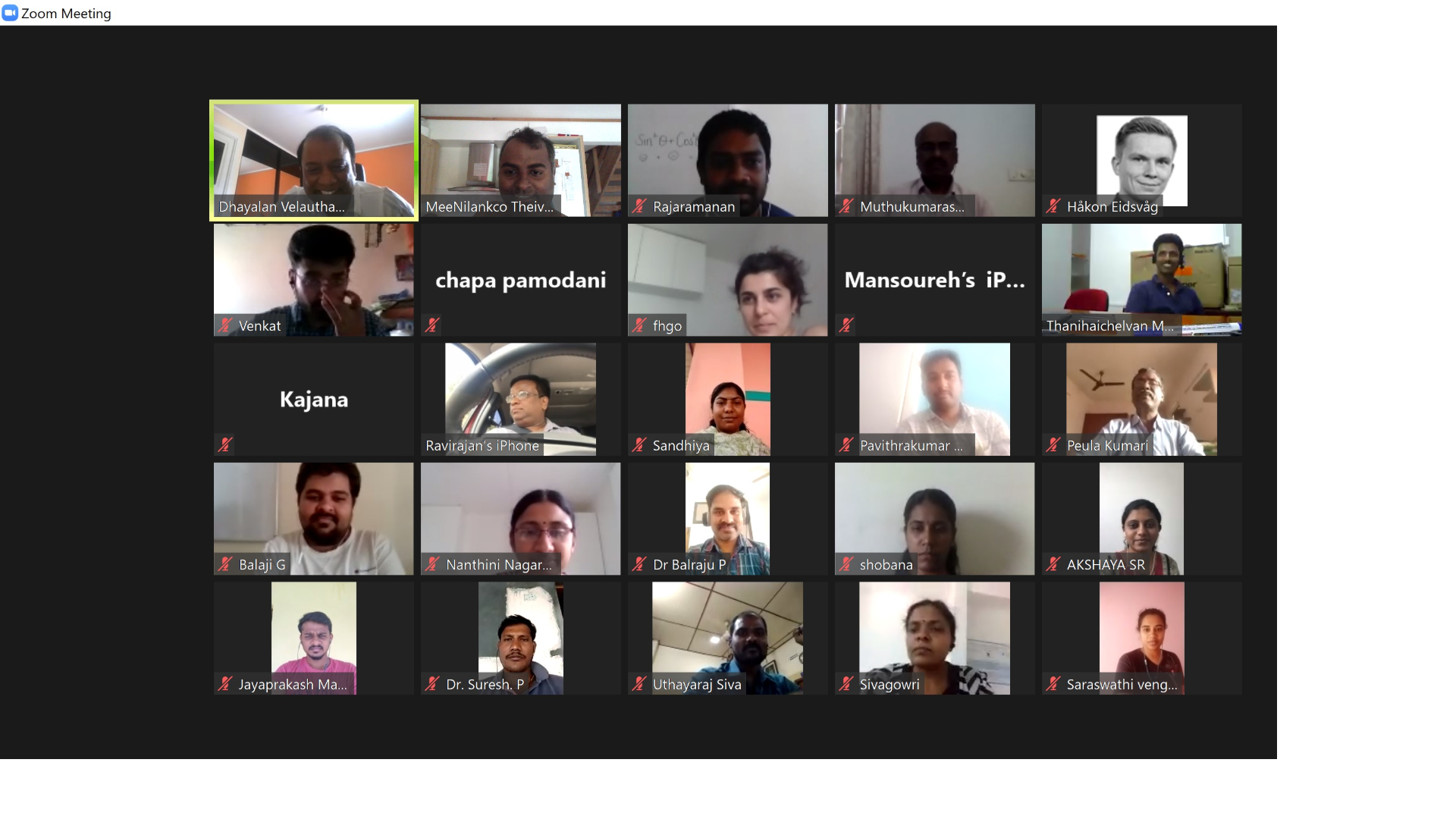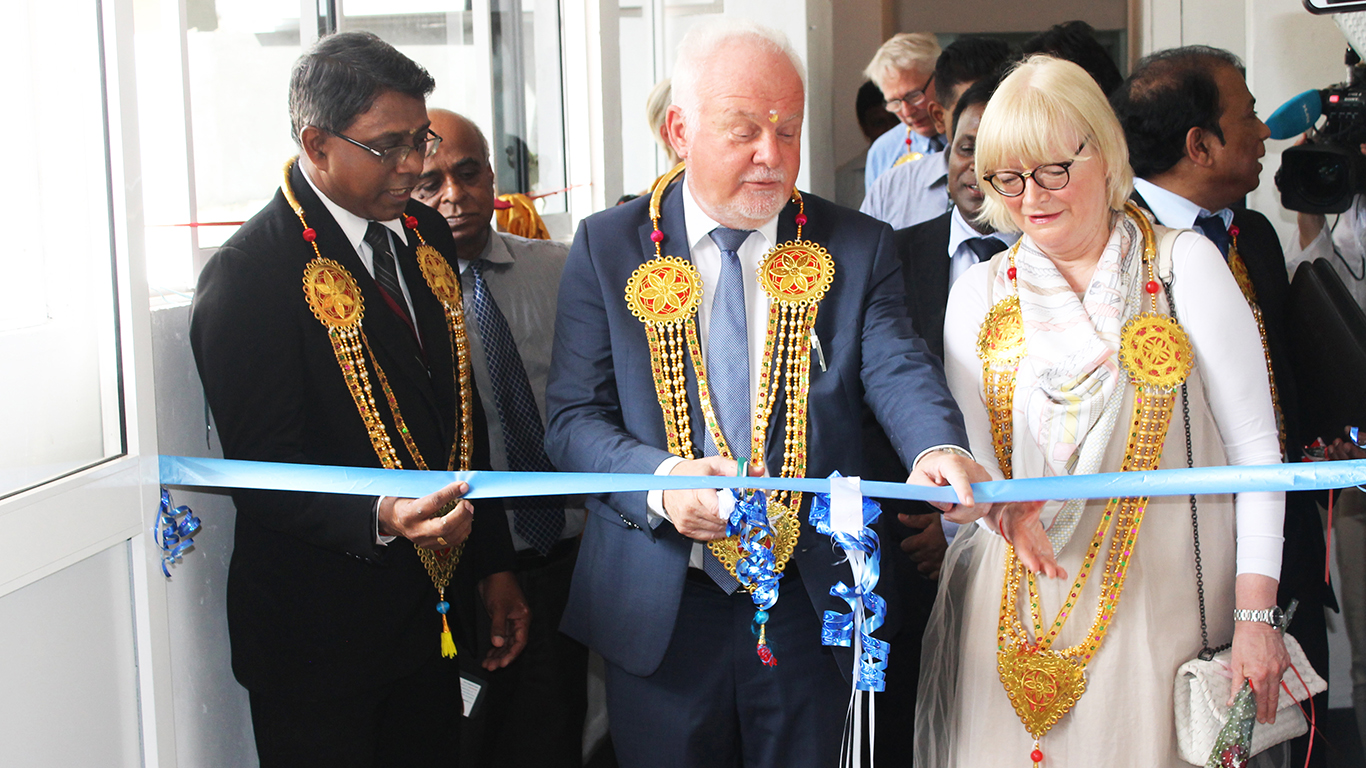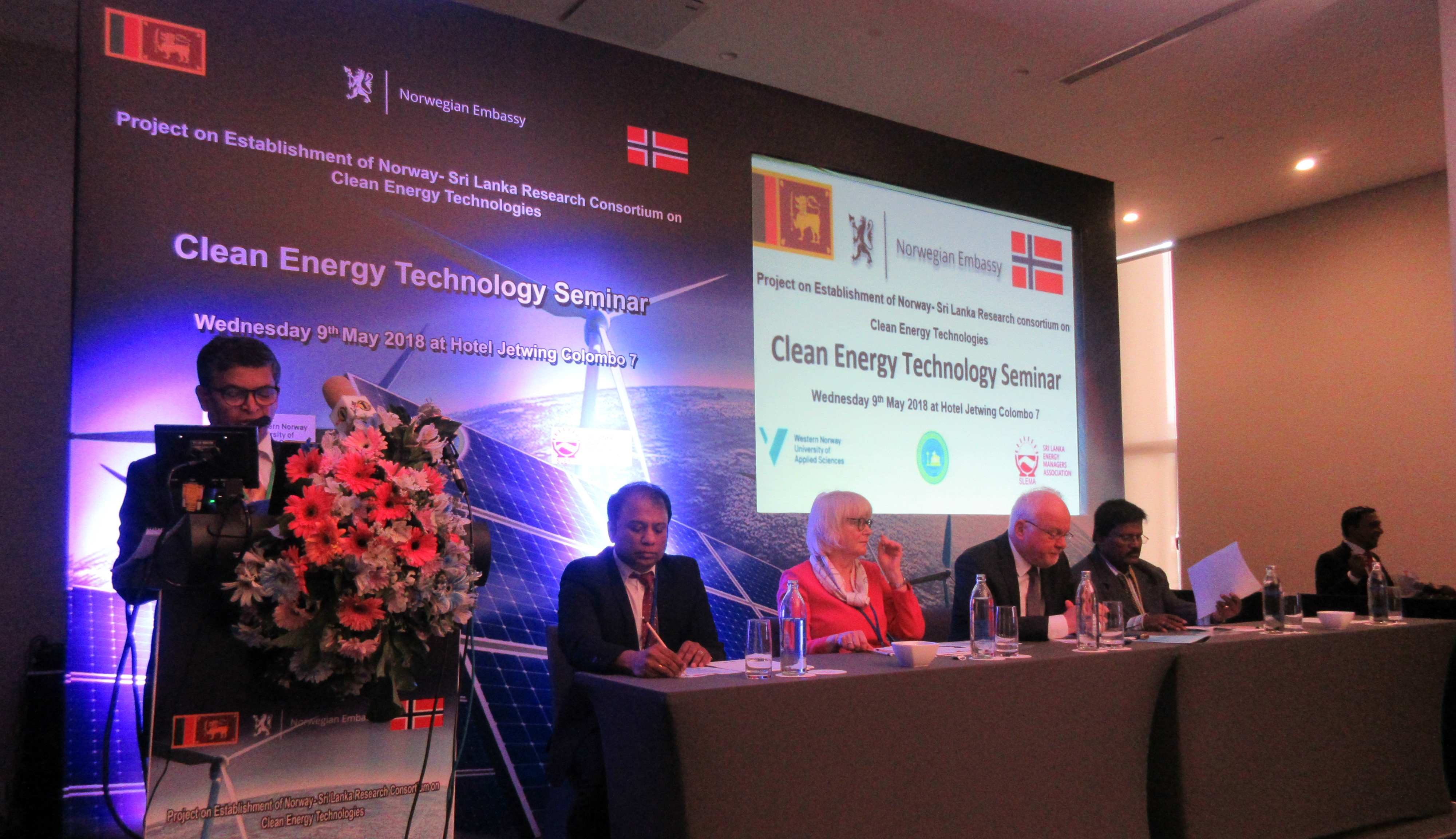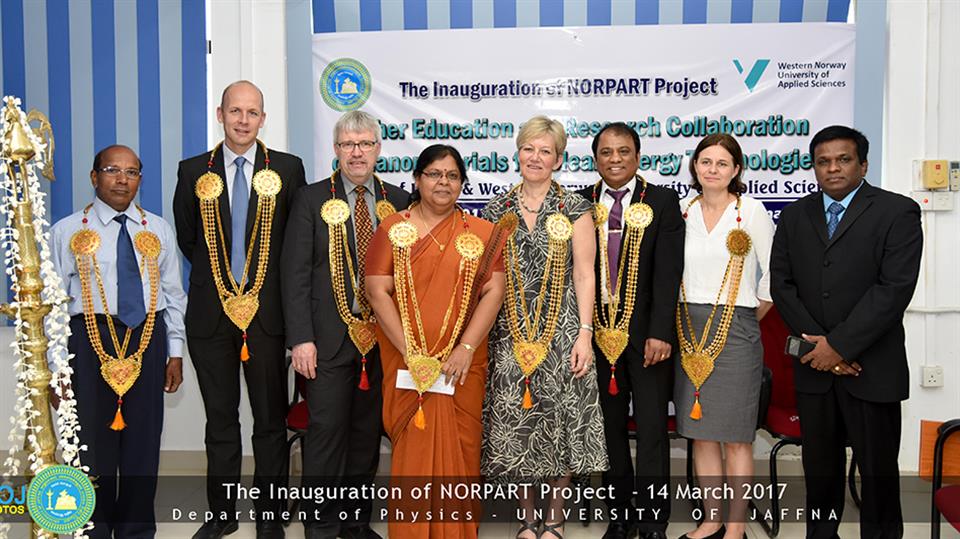An international conference on Advanced Materials for Clean Energy & Health Applications (AMCEHA 2019)
was organized jointly by University of Jaffna (UoJ) and Western Norway University of Applied Sciences (HVL)
from 6th to 8th of February 2019. The conference was funded by NFR, DICU, Royal Norwegian Embassy in Sri
Lanka, Sustainable Energy Authority and the Ministry of Science, Technology and Research in Sri Lanka. Over
400 delegates, including 120 foreign delegates from countries such as Norway, India, Canada, Australia, UK,
Bangladesh, Sudan, Sweden, Finland, Egypt, China, Japan and USA participated at this unique conference. Over
180 research articles were submitted and up to 140 research articles have been selected and presented after
peer-review process. Altogether 20 researchers from HVL, UiB, UiO and IFE and industry participated at the
conference. Selected quality papers will be published as full-scaled articles in ‘Science Citation Indexed’
journals such as MDPI-‘Materials’ and ‘Materials Today’ in the coming weeks after another set of peer-review
process by the respective publishers.
The participants at AMCEHA 2019 comprised of experts, eminent scientists, industrial representatives from
local & foreign companies and students of higher learning in Clean energy technologies and Health
applications. The conference was organized under the two collaborative projects
(http://project.jfn.ac.lk/hrncet/) between UoJ and HVL: Higher Education and Research collaboration on
Nanomaterials for clean Energy Technologies (HRNCET) and Capacity Building and Establishment of a research
Consortium (CBERC) funded by Center for Norwegian Centre for International Cooperation in Education (SIU)
and Royal Norwegian Embassy in Sri Lanka, respectively. The conference and the workshop were co-chaired
by Professor Dhayalan Velauthapillai from Western Norway University of Applied Sciences and Professor P.
Ravirajan of the Department of Physics, University of Jaffna. The first two days of the conference were held at
Main premises of the University of Jaffa in Thirunelvely and the third day at the Faculty of Engineering in
Kilinochchi premises.
Inauguration ceremony was commenced after procession of invited speakers and guest, lighting of oil lamp
and welcome song and dance performed by the students from Ramanathan Academy of Fine Arts of the
university. His Excellency Thorbjørn Gaustadsæter, Ambassador at The Royal Norwegian Embassy in Colombo
was the chief guest and Prof. P.S.M. Gunaratne, Head, Research and International Cooperation & Vice
Chairman, University Grants Commission, Sri Lanka was the Guest of Honour Prof.R.Vigneswaran, Vice
Chancellor, Prof.G.Mikunthan, Dean/Graduate Studies at University of Jaffna, Rector Berit Rokne and Henning
Report
Norheim, director at HVL welcomed the gathering. Apart from the scientific activities, the conference also
provided opportunities for signing MoUs and agreements for collaboration and co-operation in higher
education and research between University of Jaffna and GEXCON: a world-renowned company in safety
measures (https://www.gexcon.com/news/Gexcon-signed-MoU-with-University-of-Jaffna/230/en) as well as
HVL and NIFS, Sri Lanka.
On behalf of the University Council, the vice-chancellor of the University of Jaffna appreciated Professor
Dhayalan Velauthapillai with a memento for his efforts in winning and executing two major projects worth of
over LKR 200 million to promote Higher Education and Research Collaboration at the university of Jaffna and
Western Norway University of Applied Sciences through students – staff mobility programmes, conducting
international conferences, outreach activities in schools and developing Master degree programmes, since the
signing of the MOU with the Western Norway University of Applied Sciences in March 2017
(http://www.jfn.ac.lk/index.php/mou-norpart/).
After the inauguration ceremony, four plenary talks were delivered by eminent scientists in the fields of
nanomaterials for solar cells, health applications and energy storage systems. An interactive poster session
was followed by one-minute spotlight presentation of each poster. Up to thirty posters were displayed by the
authors after the spotlight session.
The second day of the conference (http://conf.jfn.ac.lk/amceha/index.php/programme/) was organized under
four different symposiums with themes Solar energy applications; Advanced Materials for Health Applications;
Advanced functional materials; and Wind/Hydrogen/Bioenergy and Storage applications. Each symposium had
four plenary and invited lectures and more than 30 contributed papers. On the second day of the conference,
a considerable number of dentists and the students from the medical faculty attended the session led by world
renowned Skandinavian scientists in regenerative medicine.
Sri Lankan and Norwegian workshop on Clean Energy Applications was held at the Faculty of Engineering,
Kilinochchi as the third day of the conference which was co-chaired by Professor Dhayalan Velauthapillai from
Western Norway University of Applied Sciences and Professor A.Atputharajah, Dean/Engineering. It was
attended by most of the participants of the conference, other industrialists, policy makers from the
government sector, investors and representatives from clean energy enterprises in Sri Lanka. In order to realize
new innovations, researchers need the active support of the industry. Especially in the clean energy sector,
the industrial involvement will help us in implementing new innovative clean energy technological solutions.
Thus, on Friday, in collaboration with Sustainable Energy Authority in Sri Lanka, multiple sessions were
arranged to discuss on the challenges and possibilities in implementing clean energy solutions in Sri Lanka. The
first part was to look back at the Clean Energy Seminar held in Colombo in May 2018 and identify the progress
made in different aspects of clean energy technologies and to discuss the way forward in the future. Local and
Norwegian clean energy companies presented their activities. An interactive session was also arranged to
discuss the possibilities in enhancing collaboration in higher education in the field of clean energy technologies
between Sri Lankan, Norwegian and Indian Universities. Expatriates from various countries presented their
ideas on how the expatriate community contribute in capacity building at University of Jaffna.
This international conference is considered as an historical event of the university of Jaffna with more than
120 foreign participants, and students, academics, officials and all the national and international delegates
had praised the conference as one of the best conferences they have attended. The conference is
characterized as of high quality and well organized. AMCEHA 2019 has contributed in widening the research
networks working on nano materials for clean energy and health applications; the academic personal have
broadened their research network and the students have got international exposure and are really inspired by
high quality research presentations. In addition, the participants at the conference had also an opportunity to
enjoy the hospitality of the people in the region.
Oraginising committee of AMCEHA – 2019, acknowledge Norwegian Research Council, Royal Norwegian Embassy in
Colombo, Norwegian Centre for International Cooperation in Education (SIU), , Sri Lanka Sustainable Energy Authority and
Mininstry of Science, Technology and Research for their generous financial support.





